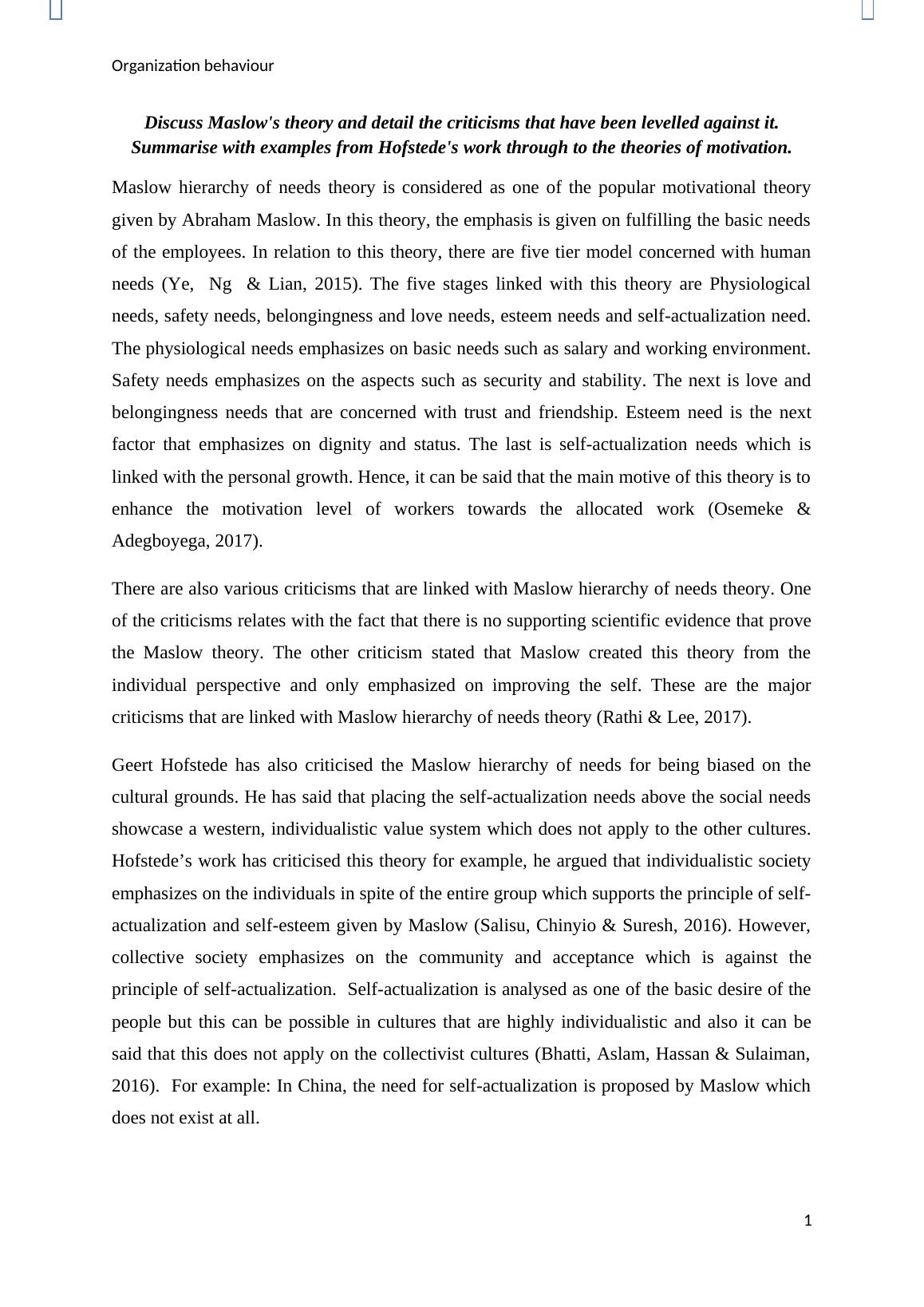Maslow's Theory and Criticisms: Examples from Hofstede's Work to Motivation Theories
4 Pages781 Words274 Views
Added on 2022-11-14
About This Document
Maslow hierarchy of needs theory is considered as one of the popular motivational theory given by Abraham Maslow. In this theory, the emphasis is given on fulfilling the basic needs of the employees. In relation to this theory, there are five tier model concerned with human needs. The five stages linked with this theory are Physiological needs, safety needs, belongingness and love needs, esteem needs and self-actualization need. The physiological needs emphasizes on basic needs such as salary and working environment. Safety needs emphasizes on the aspects such as security and stability. The next is love and belongingness needs that are concerned with trust and friendship. Esteem need is the next factor that emphasizes on dignity and status. The last is self-actualization needs which is linked with the personal growth.
Maslow's Theory and Criticisms: Examples from Hofstede's Work to Motivation Theories
Added on 2022-11-14
ShareRelated Documents
End of preview
Want to access all the pages? Upload your documents or become a member.
Content and Process Theory
|6
|1352
|63
Importance of Motivation and Theories of Motivation
|10
|2418
|35
Motivational Theories for Increasing Employee Engagement
|9
|3249
|283
Motivational Theories and Their Implication in Modern Workplace
|8
|1959
|250
People and Organizational Management: Motivation, Teamwork, and Change Management in Tesco
|13
|3625
|74
Managing People - Assignment Solution
|9
|2535
|123


